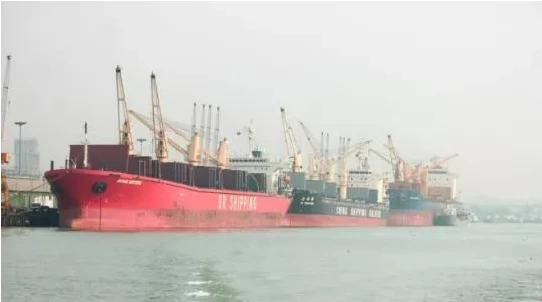Manufacturers demand cancellation of congestion surcharge
Shipping companies continue to change the additional surcharges, and shippers around the world have suffered for a long time.
Recently, there has been severe congestion in Southeast Asia. It is reported that feeder ship operators to and from Chittagong, Colombo, Singapore and Port Klang will impose emergency cost recovery surcharges ranging from 35-75 US dollars for outbound and inbound cargo to Bangladesh. Fees (ECRS).
It is reported that the Bangladeshi garment manufacturer requires the government to take immediate measures to withdraw the emergency cost recovery surcharge caused by port congestion.

In a letter to the Ministry of Shipping, the Chittagong Port Authority and the Bangladesh Freight Forwarders Association (BSAA), the manufacturer stated that since the apparel industry and other industries have been hit by the Covid-19 pandemic, they are already in danger .
Global retailers are continuing to suspend or cancel orders, which brings uncertainty to factories and workers.
Mohammed Abdus Salam, first vice chairman of the Bangladesh Garment Manufacturers and Exporters Association (BGMEA), wrote: “The severe negative impact of the epidemic on the national economy is obvious.”
Starting from November 15th, feeder ships going to and from Chittagong Port will be levied a congestion surcharge of 75 USD/TEU, and an empty container is 37.50 USD/TEU.
As the ports of Colombo, Singapore and Port Klang have experienced severe congestion in the past few weeks, ships have faced up to 48 hours of berthing delays, resulting in productivity losses. Carriers tried to make up for them with surcharges, so surcharges were imposed.
Salam wrote: “It is unreasonable and unacceptable to impose surcharges under the epidemic.” He added that this may increase the cost of importing raw materials, and buyers may not be able to pay exporters the full price of finished products. In this way, Bangladesh's clothing may lose competitiveness. "
BSAA chairman Ahsanul Huq Chowdhury argued that the surcharge was not collected locally. He said that feeder ships are realizing that the freight charges that they charge from global buyers have increased.
"Due to the congestion of the hub port, the daily operating cost of the alliance ship operators exceeds 10,000 US dollars. Therefore, they are forced to impose surcharges," he added, once the congestion eases, the surcharges will be cancelled.
A mainline transportation company in Dhaka stated that 90% of Bangladesh’s goods are arranged by FoB, where the buyer is responsible for the payment, not the exporter.
He said that the surcharges of Chittagong and hub ports have no impact on exporters. He said: "Bangladesh must follow global freight rates like other countries."




















